ASTANA — Representatives from Central Asian regional organizations, development partners, private sector and civil society convened for a high-level meeting hosted by the Kazakh government and UN Women on Feb. 6. The event, marking the 30th anniversary of the Beijing Declaration and Platform for Action (BPfA), highlighted regional progress and the ongoing challenges in advancing women’s rights.
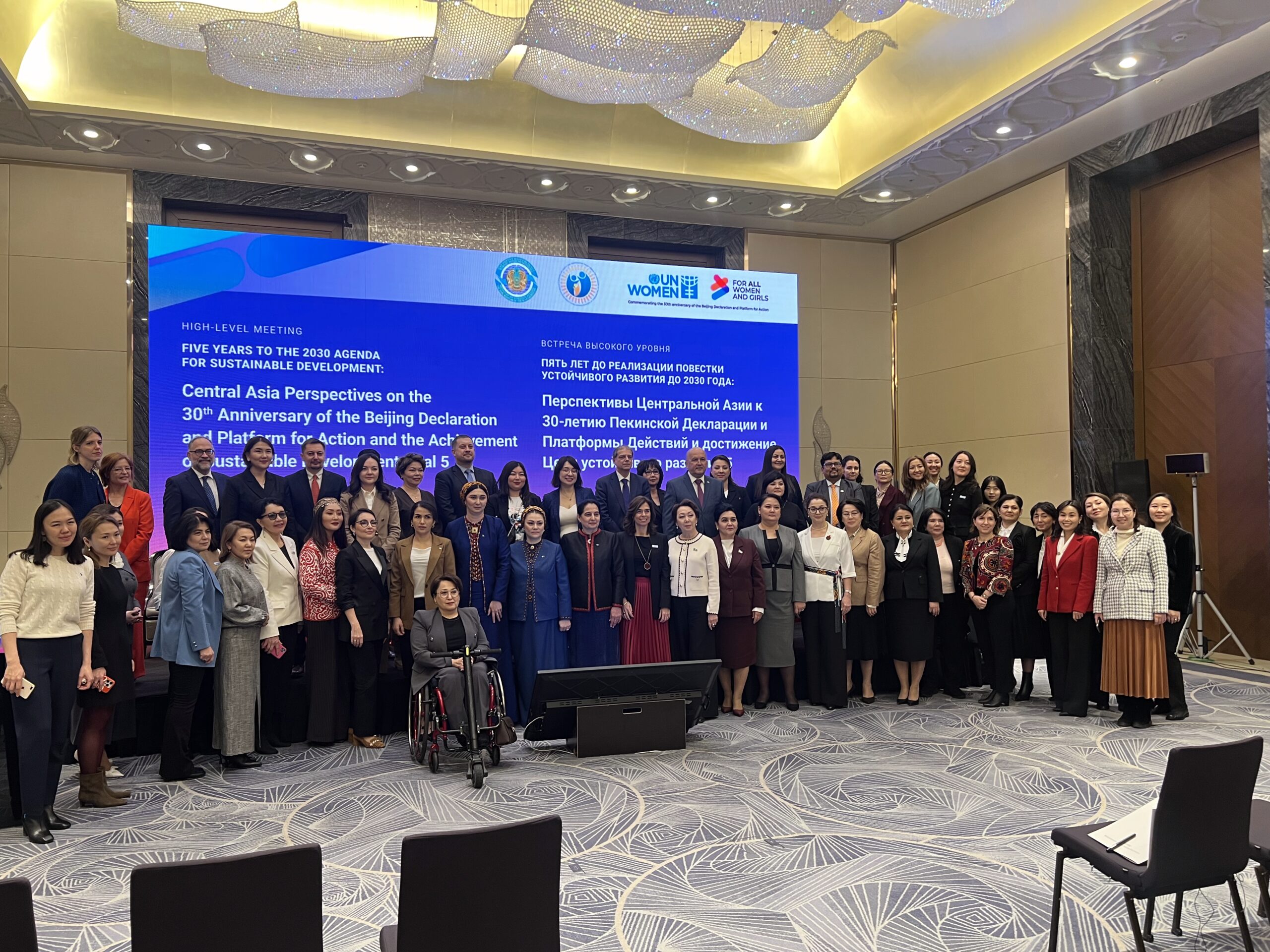
High-level meeting “Five years to the 2030 Agenda for Sustainable Development: Central Asia perspectives on the 30th anniversary of the Beijing Declaration and Platform for Action and achievement of SDG 5”. Photo credit: Nagima Abuova / The Astana Times
In her opening remarks, Minister of Culture and Information Aida Balayeva highlighted the country’s strides since joining the BPfA in 1995.
“The Constitution of Kazakhstan, adopted in the same year as the Beijing Declaration, guarantees equality of rights and opportunities for every citizen,” said Balayeva. “It has been further strengthened in recent years.”
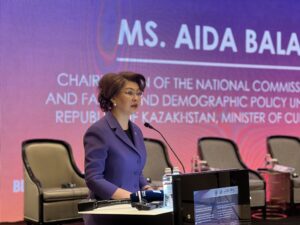
Kazakh Minister of Culture and Information Aida Balayeva notes the country’s strides since joining the BPfA in 1995. Photo credit: Nagima Abuova / The Astana Times
Balayeva underscored the 2022 constitutional reforms, which reinstated the Constitutional Court and strengthened human rights protections, as vital to advancing gender equality efforts.
“I want to emphasize the significance of these changes because strengthening human rights institutions creates more reliable conditions for promoting gender equality. This aligns with Kazakhstan’s international obligations under the Beijing Declaration and other key international documents on women’s rights,” she added.
Balayeva also noted the importance of regional collaboration, urging Central Asian nations to maximize their collective potential for experience-sharing and policy development.
“Over the next five years, we must be particularly effective in moving toward full implementation of the Beijing Declaration. Only through joint efforts can we achieve sustainable progress in gender equality,” said Balayeva.
Central Asia’s role in advancing gender equality
The meeting served as a precursor to the 69th session of the Commission on the Status of Women (CSW69) at the UN headquarters in New York in March 2025. Participants reviewed the progress on Sustainable Development Goal (SDG) 5—gender equality—and explored financial mechanisms to support related initiatives, emphasizing the need for renewed regional solidarity.
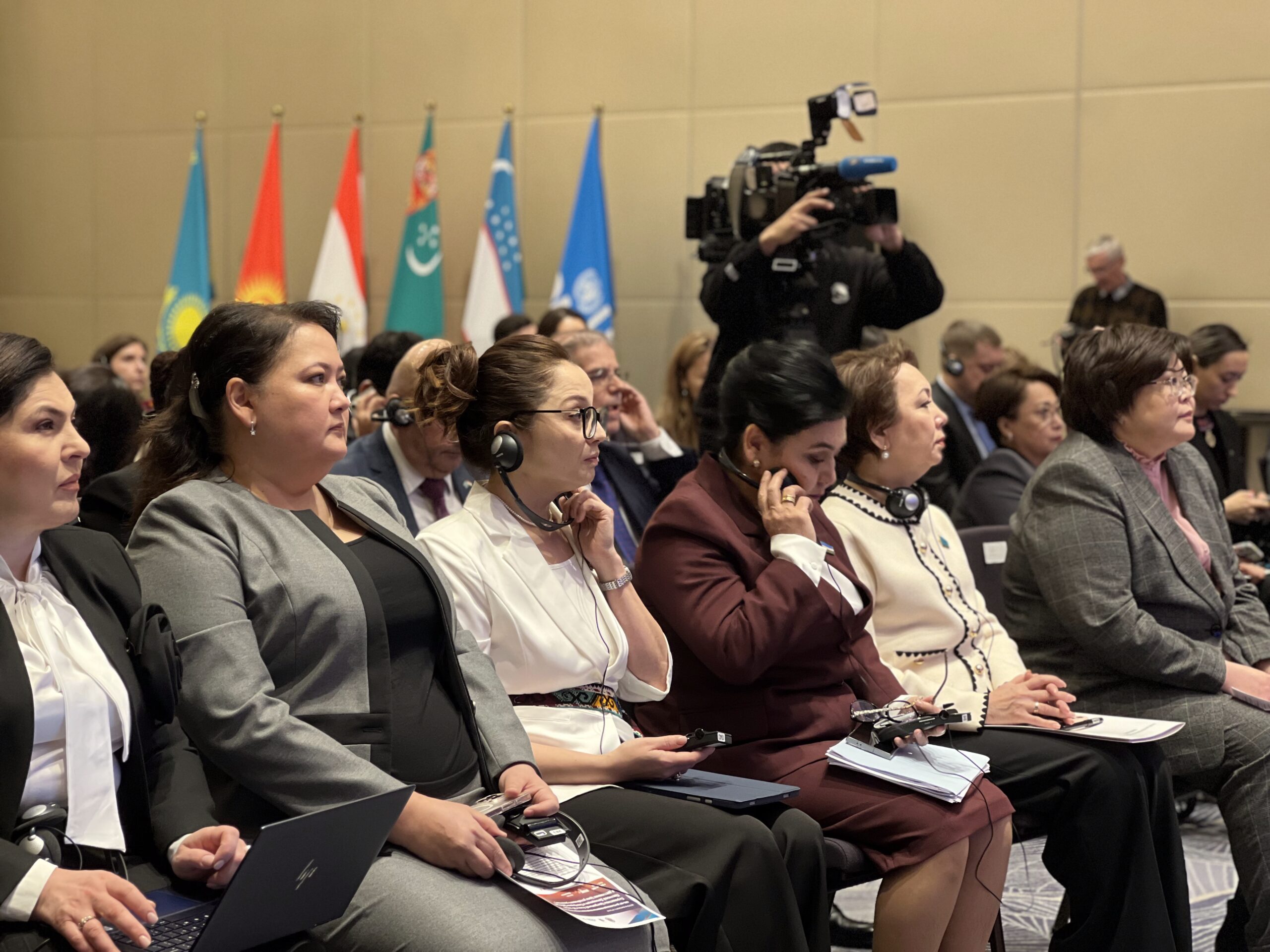
UN Women and the Government of Kazakhstan are convening a high-level subregional meeting for Central Asia countries. Photo credit: Nagima Abuova / The Astana Times
Belén Sanz Luque, the regional director for UN Women Europe and Central Asia, highlighted the BPfA’s global significance and the advances made over the past three decades.
“We are here today because we are fully committed to a vision crafted 30 years ago in Beijing – a vision where the freedoms, human rights, and opportunities for all women and girls everywhere can be fully realized. This is our common aspiration,” said Sanz Luque.

Belén Sanz Luque, the regional director for UN Women Europe and Central Asia, highlights the BPfA’s global significance and the advances made over the past three decades. Photo credit: Nagima Abuova / The Astana Times
She noted that the percentage of women and girls living in extreme poverty has dropped below 10% globally, and more than 95% of legal measures to address domestic and intimate partner violence have been established since the adoption of the Beijing Platform for Action.
Despite this progress, Sanz Luque emphasized that the path to gender equality is not linear. “It requires sustained commitment, political will, and investment, and it is affected by the conflicts and crises facing humanity.”
According to the UN Women’s estimates, it would take 137 years to eradicate extreme poverty for women and girls, 300 years to end child marriage globally, 286 years to close the gaps in legal protection, 140 years for women to be equally represented in positions of power worldwide, and 47 years to achieve equal representation in national partnerships.
“I do not think we want to wait so long that not my daughters, not my granddaughters, nor the daughters of my granddaughters can see and live in full equality. This is a call to all of us. Now is the time to make a real difference in transforming the lives of women and girls and to turn the vision and aspirations of the Beijing Platform for Action into reality,” said Sanz Luque.
Strengthening legal frameworks and regional commitment
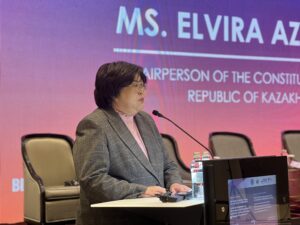
Elvira Azimova, the chairperson of the Constitutional Court of Kazakhstan, discusses the critical role of legal frameworks in ensuring gender equality. Photo credit: Nagima Abuova / The Astana Times
Elvira Azimova, the chair of the Constitutional Court of Kazakhstan, discussed the critical role of legal frameworks in ensuring gender equality.
“The Constitution is the backbone of our country’s legislative framework, enshrining the protection of motherhood, fatherhood, childhood and non-discrimination (…) What is discussed within the framework of the Beijing Declaration is not just about policy—it must be enshrined in law and implemented. We must ensure that gender policy aligns with the rule of law and that women have full access to justice,” said Azimova.
First Deputy Minister of Foreign Affairs Akan Rakhmetullin highlighted the country’s efforts to combat gender-based violence through regional cooperation.
“In June 2023, we launched the Central Asian Alliance to End Gender-Based Violence. This alliance aims to create zero tolerance for violence, positively impacting the lives of 35 million women and girls across the region,” said Rakhmetullin.
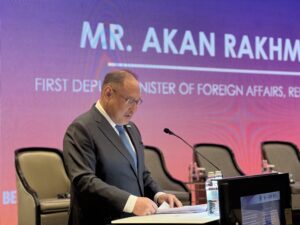
Kazakh First Deputy Minister of Foreign Affairs Akan Rakhmetullin underscores the country’s efforts to combat gender-based violence through regional cooperation. Photo credit: Nagima Abuova / The Astana Times
He also highlighted Kazakhstan’s contributions to UN peacekeeping operations, including the deployment of seven Kazakh female military personnel. Additionally, Kazakhstan co-chaired the Beijing+30 Regional Review meeting for UN Economic Commission for Europe (ECE) member countries in Geneva last October. As part of the regional review process, Kazakhstan has submitted its national implementation report on BPfA. The outcomes of this review will be presented at the global review in March 2025 in New York.
“The need for further efforts to achieve SDG 5 remains a priority for us (…) We see significant transformational changes in gender policy and women’s leadership, especially in Central Asia, and we are ready to continue working to ensure the rights of women and girls,” said Rakhmetullin.
